

Persimmon cake is also used as a traditional remedy for diarrhea, hemorrhoids, lung infections
and asthma. To make persimmon cake: the fruit should be plucked when
the skin starts turning yellow. Peel and discard the skin and place the
fruit in the sun to dry, applying pressure frequently on each fruit to
gradually flatten it. Continue drying the flattened fruit in the sun or
in the open until a white frosting appears and covers the entire
surface.
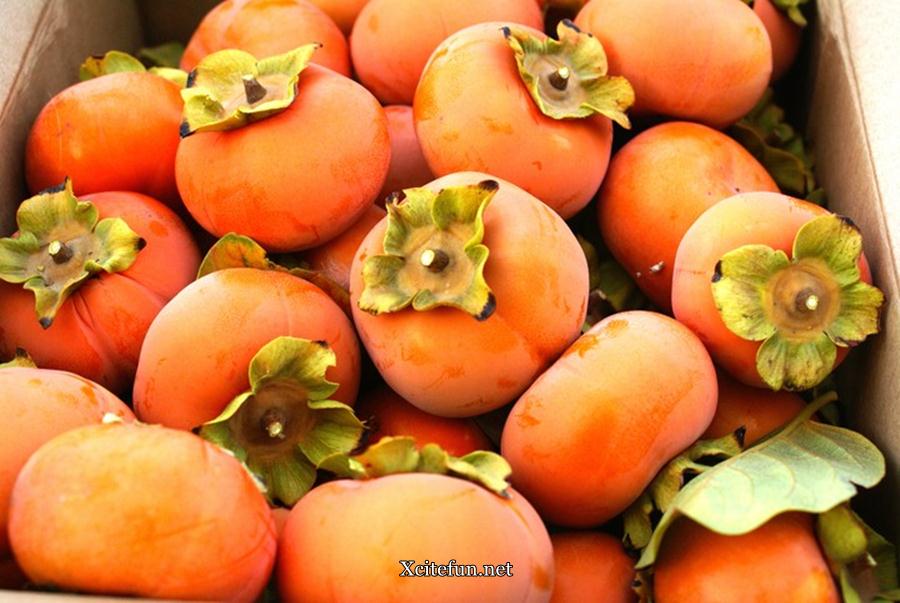
Astringent taste of persimmon can help stops diarrhea, reduces sweating, and slows or stops bleeding.Persimmons can help prevent cancer because it is high in vitamin A. It contain compounds known as shibuol and betulinic acid that are thought to have anti-cancer properties.A study conducted in Japan showed that the peel of the persimmon contains phytochemicals known as proanthocyanidins which may protect cells against oxidative damage associated with aging.

The best way of enjoying this healthy fruit is by eating it fresh. It
is also use as ingredient when making cakes, desserts, pies and ice
cream. At home, you can add persimmon slices to salads or puree them to
make smoothies, jellies, a topping for pancakes, or use it as a
flavoring for yogurt. It can also be mixed with other fruits to create a
fruit salad. The fruit is low in calories (provides 70 cal/100g) and fats but is rich source of dietary fiber.

Astringent taste of persimmon can help stops diarrhea, reduces sweating, and slows or stops bleeding.Persimmons can help prevent cancer because it is high in vitamin A. It contain compounds known as shibuol and betulinic acid that are thought to have anti-cancer properties.A study conducted in Japan showed that the peel of the persimmon contains phytochemicals known as proanthocyanidins which may protect cells against oxidative damage associated with aging.

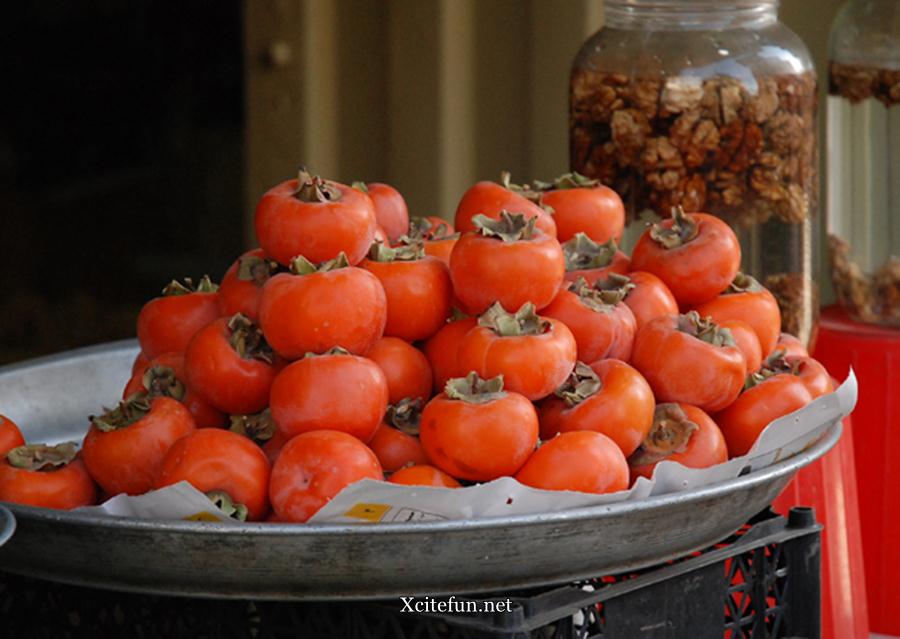
Fresh permissions contain anti-oxidant compounds like vitamin-A, beta-carotene, lycopene, lutein, zeaxanthin and cryptoxanthin. Together, these compounds functions as protective scavengers against oxygen-derived free radicals and reactive oxygen species (ROS) that plays a role in aging and various disease processes. zeaxanthin, an important dietary carotenoid, selectively absorbed into the retinal macula lutea in the eyes where it is thought to provide antioxidant and protective light-filtering functions; thus, helps prevent "Age related macular disease"(ARMD) in the elderly. The fruits are also very good source of vitamin-C, another powerful antioxidant (especially native Chinese and American persimmons; provide 80% of DRI). Regular consumption of foods rich in vitamin C helps body develop resistance against infectious agents and scavenge harmful, pro-inflammatory free radicals. The fruit is good in many valuable B-complex vitamins such as folic acid, pyridoxine (vitamin B-6), thiamin...etc. These vitamins act as co-factors for numerous metabolic enzymatic functions in the body.

Fresh Persimmon fruits also contain healthy amounts of minerals like potassium, manganese (15% of DRI), copper (12% of DRI), and phosphorus. Manganese is a co-factor for the enzyme, superoxide dismutase, which is a very powerful free radical scavenger. Copper is a co-factor for many vital enzymes, including cytochrome c-oxidase and superoxide dismutase (other minerals function as cofactors for this enzyme are manganese and zinc). Copper is also required for the production of red blood cells.
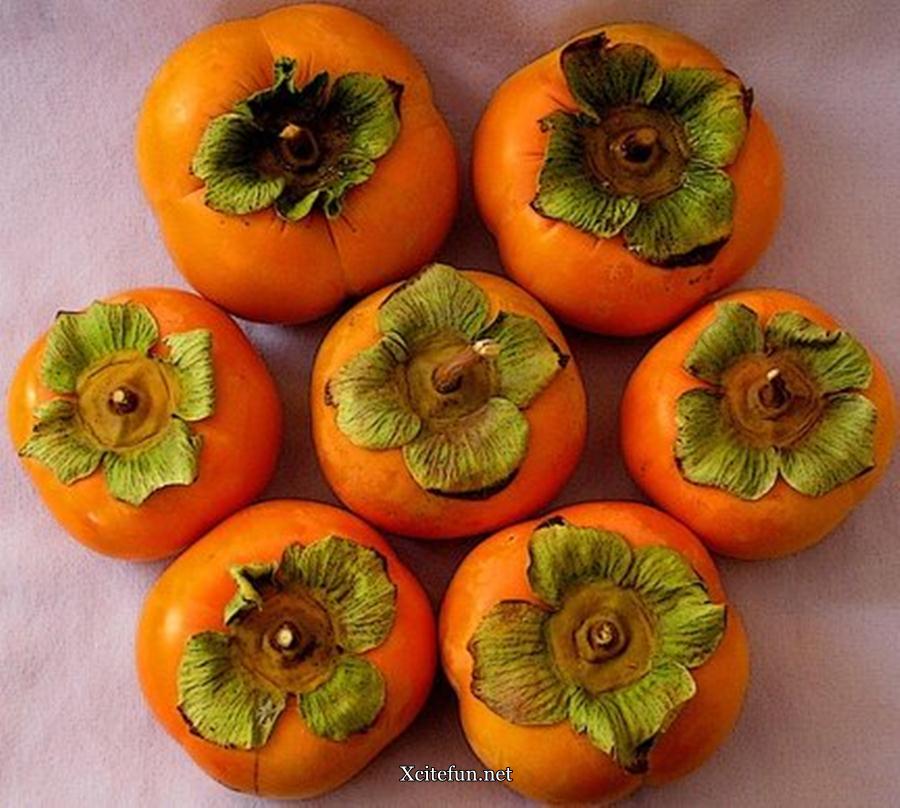
Nutrition & Health Benefits of Eating Persimmon:
There are many health benefits of eating persimmon. This fruit is low in calories and fats, which add up as its biggest benefit. It is also a rich source of dietary fiber.
Persimmons are replete with many phyto-nutrients flavonoid poly-phenolic anti-oxidants. Catechins and gallocatechins as well as important anti-tumor compound betulinic acid contained in this fruit is said to be highly beneficial for health. Catechins are known to have anti-infective, anti-inflammatory and anti-hemorrhagic properties.

.
The fruit is also rich in anti-oxidant compounds like vitamin-A, beta carotene, lycopene, lutein, zeaxanthin and cryptoxanthin. These compounds offer protection against oxygen-derived free radicals and reactive oxygen species (ROS) responsible for aging and a host of other health problems. Persimmons are a rich source of vitamin-C. Their regular consumption helps the body build immunity against contagious forces and protects against harmful, pro-inflammatory free radicals.The fruit is replete with many valuable B-complex vitamins, such as folic acid, pyridoxine (vitamin B-6), thiamin, etc. These vitamins act as co-factors for numerous metabolic enzymatic functions in the body.

Fresh persimmon fruits contain healthy amounts of minerals like potassium, manganese, copper and phosphorus. These minerals are believed to be powerful free radical scavengers and boost the production of blood cells. Persimmon tannins calm intestinal movements and relieve diarrhea too. They are also effective in treating bruises, as tannins are believed to slow down subcutaneous bleeding. Persimmon tannin protects cells, astringes tissues and suppresses the propagation of bacteria. It is also known to work against influenza and viral flu. The fruit contains a large amount of sugars - glucose and fructose - that help keep a healthy vascular system. What more, they strengthen cardiac muscle too.Persimmon is good for skin. It makes for an excellent facial mask. Just take the flesh of persimmons, add yolk and lemon juice and make a face pack out. It is known to be effective against pores and wrinkles.
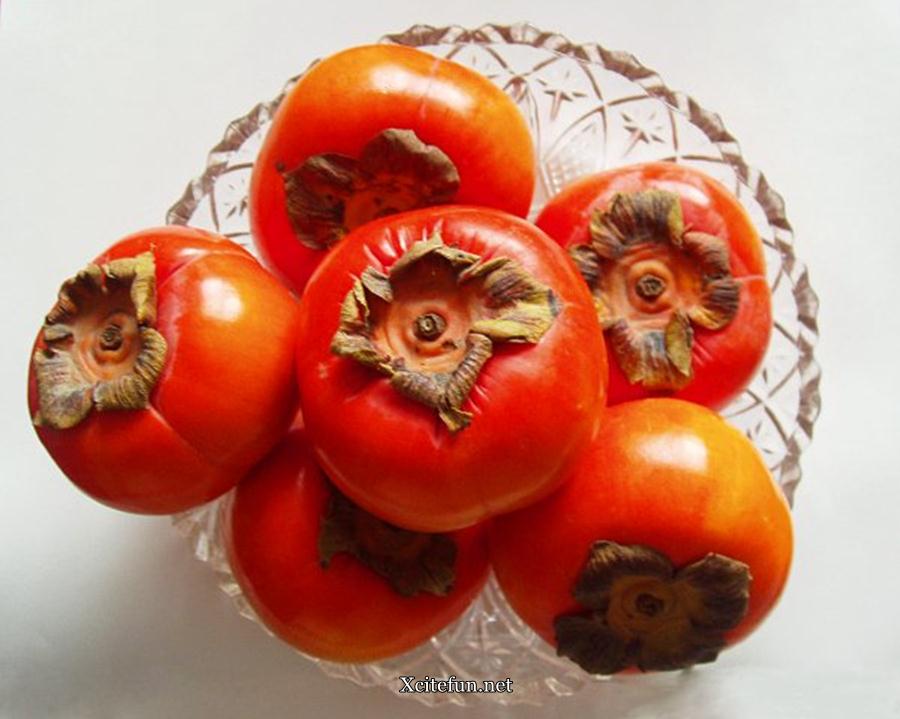
Nutrient Value in per 1 pound:
Vitamin A: 10,080 I.U.
Ascorbic acid: 48 mg
Thiamine: .11 mg
Riboflavin: .08 mg
Niacin: .4 mg
Calcium: 26 mg
Phosphorus: 97 mg
Iron:1.3 mg
Carbohydrates: 73 g
Protein: 2.6 g
Calories: 286
Persimmon Tree
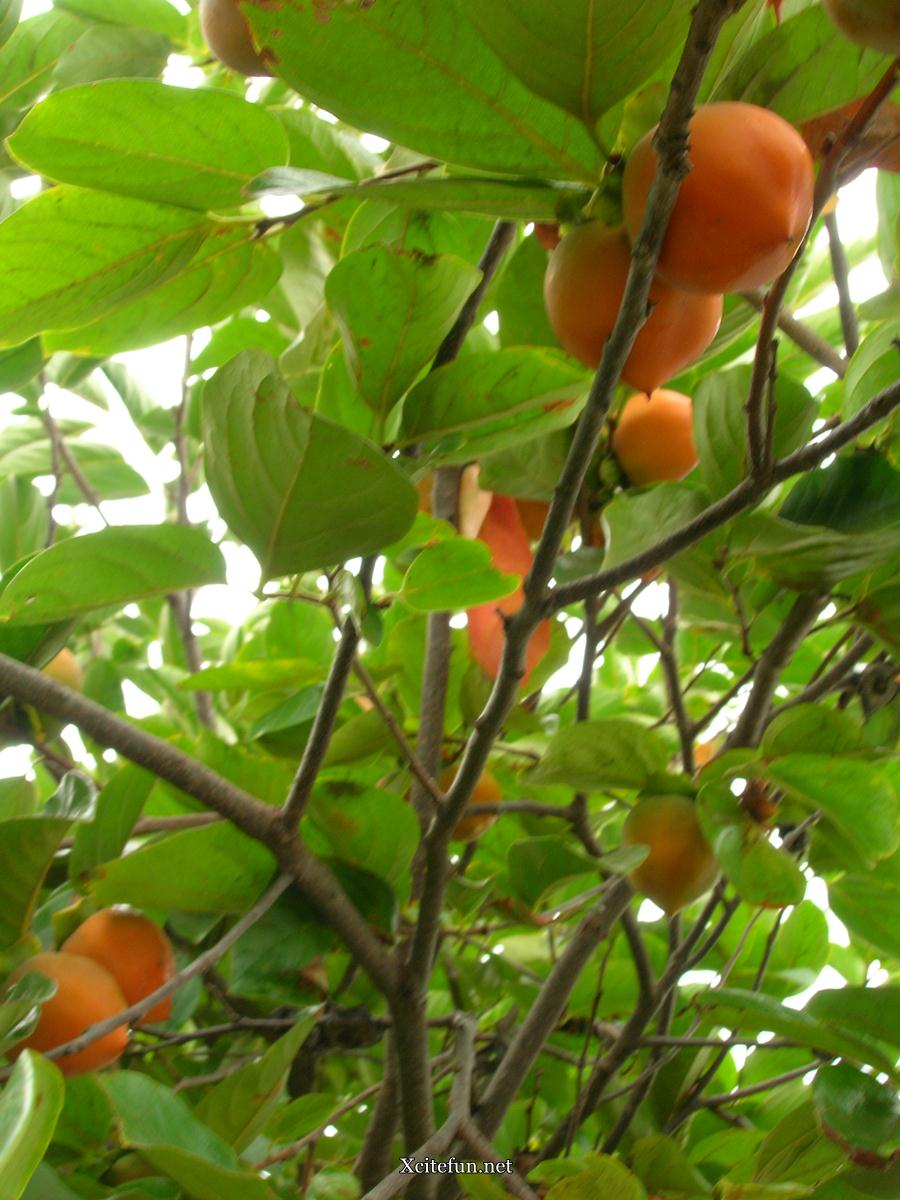


 0
0







0 comments:
Post a Comment